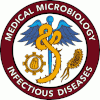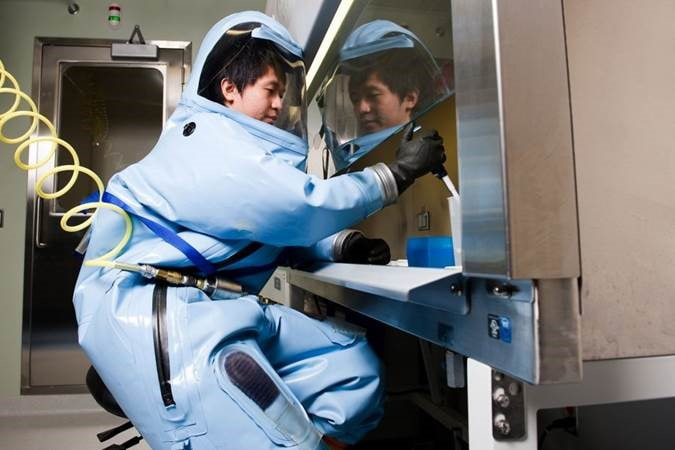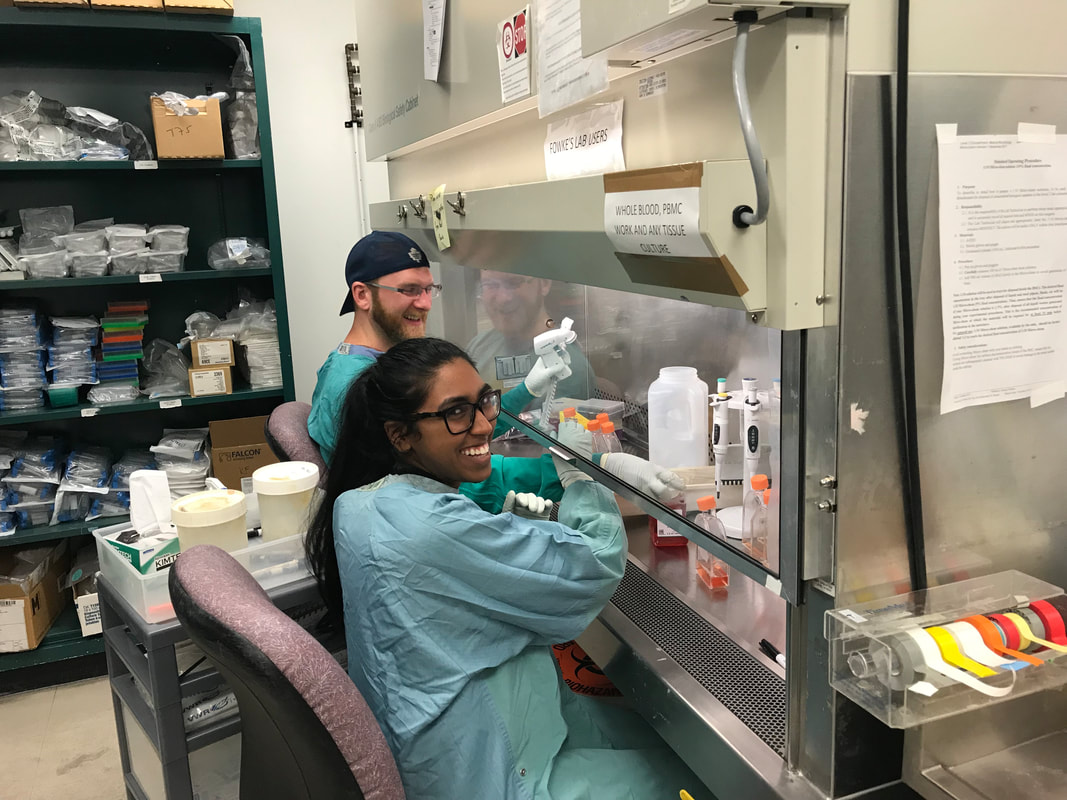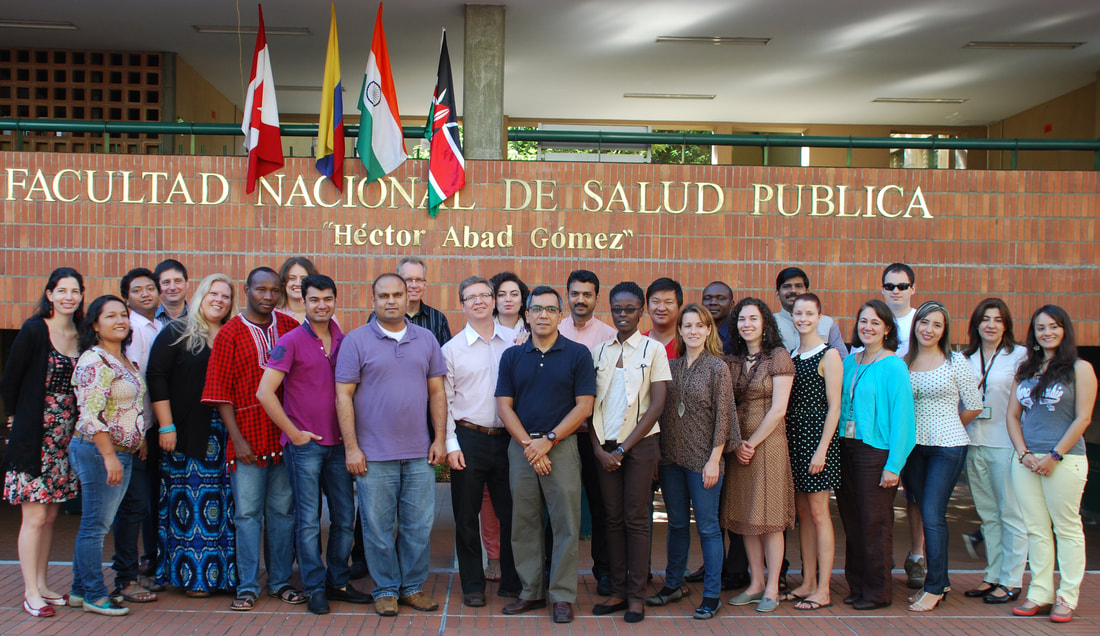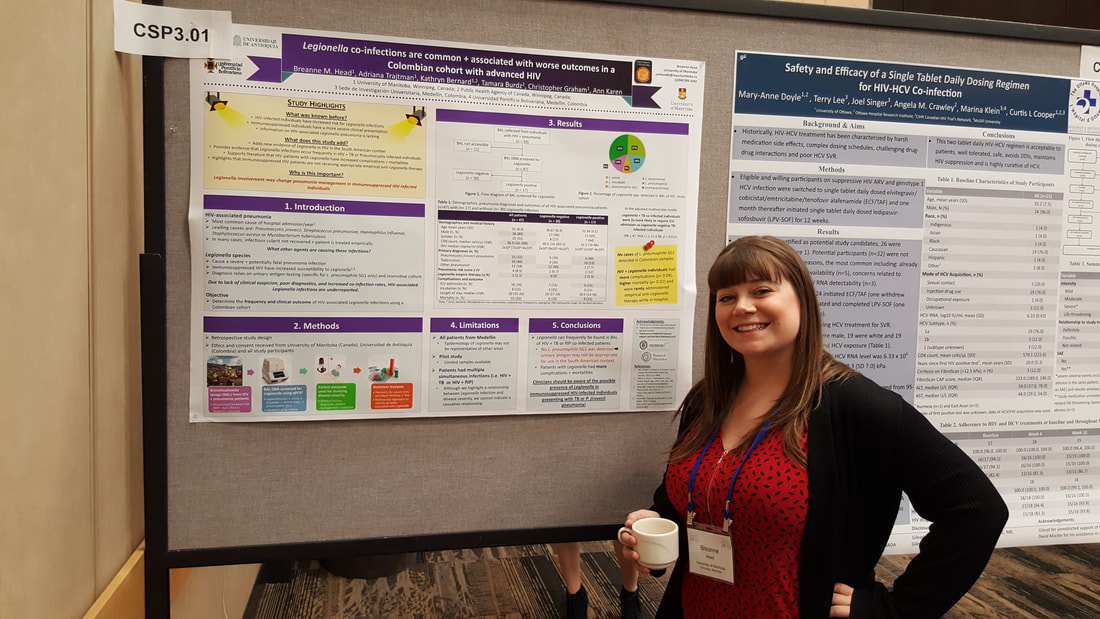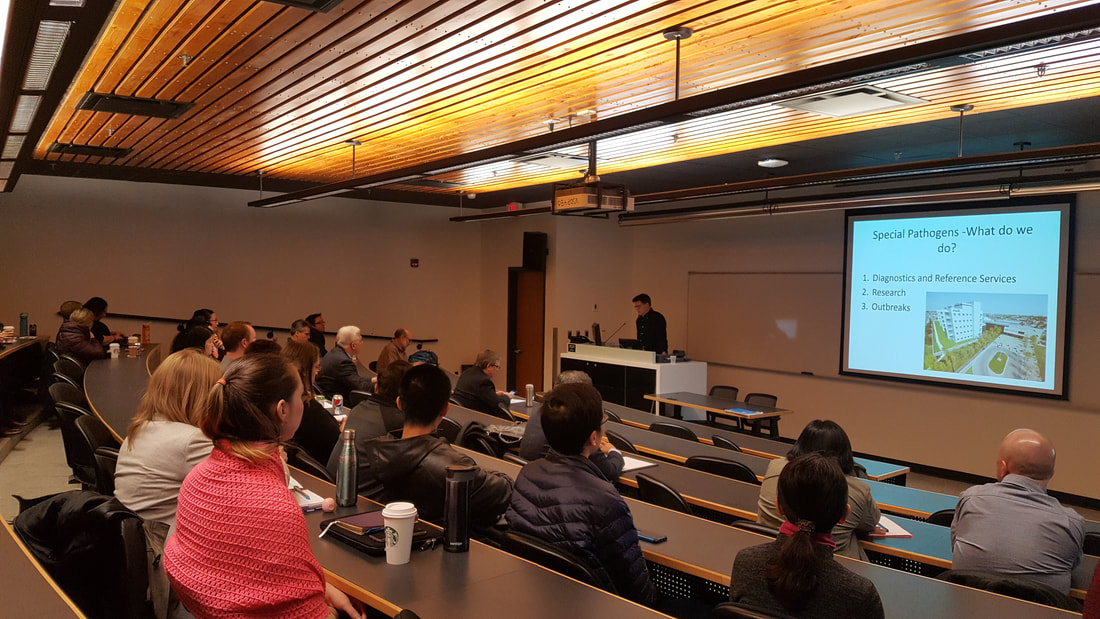Welcome.
|
The University of Manitoba has a strong history of research in infectious diseases in Canada. Recognizing this strength, the University of Manitoba has identified Immunity, Inflammation and Infectious Diseases as a signature area of established research excellence in its 2015 Strategic Research Plan. Areas of particular research strength in the Department of Medical Microbiology and Infectious Diseases (MMID) include HIV, anti-microbial resistance and virology, particularly emerging and re-emerging infections. The department has over 100 academic members that include full time members and affiliated part-time members from partner institutions and is viewed as the regional academic centre for infectious disease education and research.
MMID partners with the Public Health Agency of Canada’s National Microbiology Laboratory (NML) to provide academic research and training opportunities for researchers and students in the fields of:
Current areas of UM ID expertise include:
MMID has Canada Research Council research chairs in Emerging and Re-emerging Infections and HIV and Sexually Transmitted Infection Prevention and Control. MMID obtains $10M/yr in research funding from national and internationals granting agencies and research contracts. MMID partners with the Public Health Agency of Canada’s National Microbiology Laboratory (NML) to provide academic research and training opportunities for researchers and students in the fields of viral pathogenesis. The critical mass of infectious diseases institutions in Winnipeg (NML, National Foreign Animal Disease Laboratory, Cadham Provincial Laboratory, National Collaborating Centre for Infectious Diseases, Emergent Biosolutions), all coming together through the academic environment of MMID, creates Canada’s largest critical mass of infectious disease scientists that focus on fundamental research, clinical translation and public health implementation and surveillance. This unique environment fostered the development of treatments and immune therapies, such as vaccines, for Ebola, HIV and other infectious diseases. MMID areas of research focus: MMID uniquely brings together infectious disease experts that have the firsthand experience in dealing with global infectious diseases outbreaks. Global health and pandemic preparedness abilities include:
Training MMID has one of the large biomedical graduate programs at the UM studies program with 50-70 graduate students, all with projects on infectious disease research. Students are located on the 5th floor of the Basic Medical Sciences Building, at other UM departments, as well as partner organizations such as the Health Science Centre, Canadian Science Centre for Human and Animal Health, JC Wilt Laboratories and Cadham Provincial Laboratory. MMID also hosts the International Infectious Disease and Global Health Training program which brings together infectious disease scientists and trainees from around the world for enhanced learning and sharing sessions. The education of trainees with a clinical infectious disease focus includes undergraduate medical students (UGME) and post-graduate medical education (PGME) trainees. UGME trainees have the opportunity for ID research as part of the BSc (Med) program. MMID hosts two PGME programs, Medical Microbiology and Clinical Microbiology and partners with the Adult and Pediatric Infectious Diseases PGME programs. MMID offers a PhD program, called the MMID program, which is tailored for trainees who have completed their residency program. |
Medical Microbiology and Infectious Diseases
Max Rady College of Medicine
Room 543 - 745 Bannatyne Avenue
University of Manitoba (Bannatyne campus)
Winnipeg, MB R3E 0J9 Canad
[email protected]
Tel: 204-789-3299
Fax: 204-789-3926
Max Rady College of Medicine
Room 543 - 745 Bannatyne Avenue
University of Manitoba (Bannatyne campus)
Winnipeg, MB R3E 0J9 Canad
[email protected]
Tel: 204-789-3299
Fax: 204-789-3926
